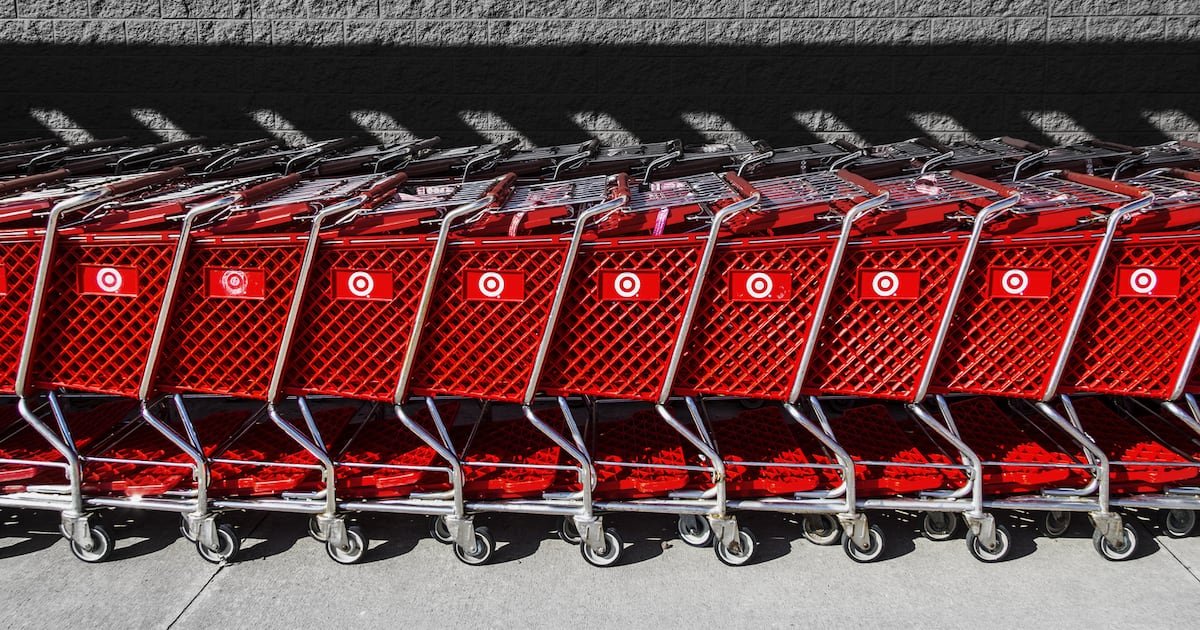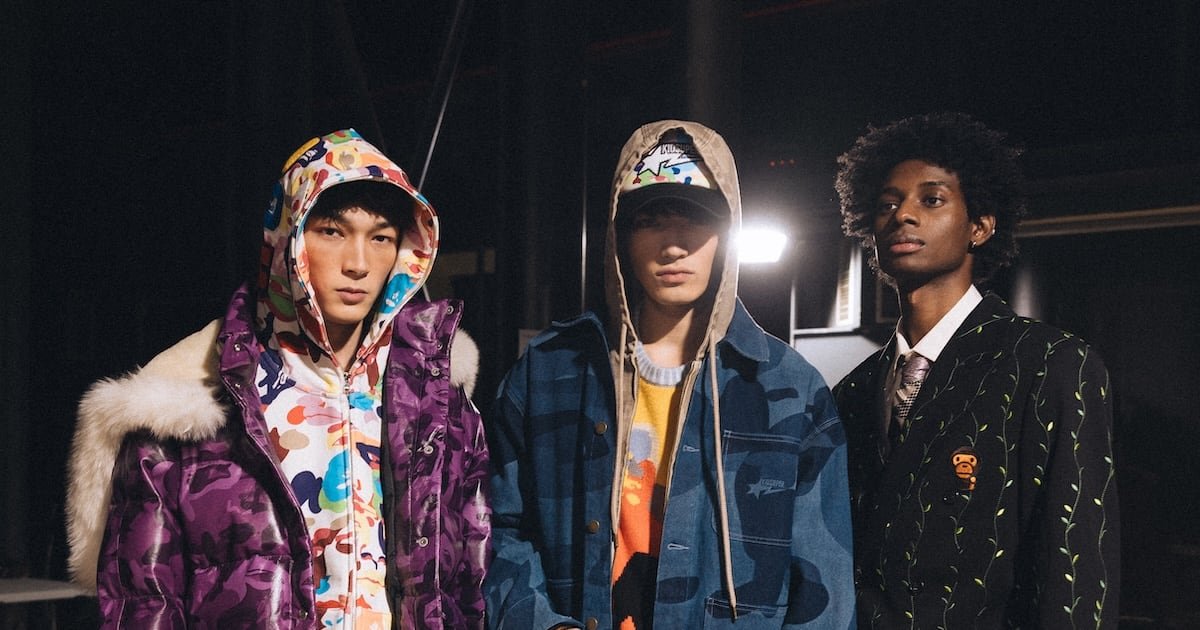About a week ago, Salwa Petersen, founder of textured hair care brand Chéribé, got a call from a Target executive: “How fast can you get here? We want to talk to you.”
Petersen, a native of Chad, had only landed her brand in Target a few weeks earlier, and was already planning a visit to the retailer’s Minneapolis headquarters. But that was before Target became the face of corporate America’s Trump-era DEI rollback.
Shortly after President Donald Trump issued executive orders on Jan. 20 and 21 targeting corporate DEI initiatives, Target announced sweeping changes to the diversity strategy it introduced after George Floyd’s killing in 2020. In a memo to employees, the company said it “understands the importance of staying in step with the evolving external landscape, now and in the future.”
The executive wanted Petersen to know that — despite the headlines — both she and her brand would still have Target’s support. That includes a coveted and typically expensive end-cap display for Chéribé during Black History Month, at no cost to her.
“Every individual we have been working with, including our [original] buyer but also our new buyer [made sure] we still feel very supported,” Petersen told The Business of Fashion while in Minneapolis. “They reached out to us. They made time to meet and connect after their announcement.”
Target is one of many companies in a wide range of industries that has walked back DEI programmes since November, often using strikingly similar language to defend their decisions. Walmart framed its move — which included ending a five-year commitment to a racial equity centre launched after George Floyd’s killing and withdrawing from a popular LGBTQ workplace rights index — as an effort to be “Walmart for everyone.” Meanwhile, Meta noted “we have a principle of serving everyone” as it sunsets its supplier diversity initiatives and discontinues its equity and inclusion training programmes.
In the coming weeks and months, the true impact of these decisions will become clearer — on industry talent, brand founders from marginalised communities, and consumers more broadly. Some see the corporate walkback giving cover to workplace racism, sexism and homophobia, and for executives to tout their inclusive workplaces without taking real action to live up to that ideal. Others — Petersen among them — take companies like Target at their word — that they can create inclusive and welcoming environments for their employees, vendors and consumers even if they’re not labeling those efforts as DEI.
“We have to recognise it’s very convoluted right now — you’re not going to find anybody with the perfect language,” said Amber Cabral, an author and consultant who was a diversity strategist at Walmart until 2017. “But in the experiences and in the relationships you have … you need to do your own assessment — ‘does this organisation operate with the kind of integrity that matters to me?’”
Having it Both Ways
Not everyone has abandoned DEI in the wake of Trump’s victory. Apple and Costco, beauty brands Sally Beauty and E.l.f. Cosmetics, and, on Monday, the National Football League, have publicly reaffirmed their commitments to the idea.
Still, backlash against corporate DEI programmes had been building long before Trump’s orders, with many fashion firms already quietly folding their diversity mission into their human resources teams. In contrast with the strident statements from CEOs in 2020 calling for a reckoning on racial justice, many companies have gravitated towards a broader, more ambiguous definition of DEI.
Often that means rebranding their approach as being “for everyone,” as opposed to serving historically disadvantaged groups.
A rebrand that steers clear of the polarising terminology of DEI could give well-intended companies room to achieve the same goals they set out to achieve in 2020, or earlier, some experts say.
“DEI isn’t just for Black and brown and poor folks,” Cabral said. “It is for everybody in the sense that whether you’re Black, poor, disabled or are from another country — whatever container it comes in … you have an opportunity here.”
The danger, though, is that companies dismantling DEI programmes will fall back into old habits, said Jamie Gill, founder of The Outsiders Perspective, a nonprofit incubator programme for people of colour.
Without the right tools and policies to harness diverse perspectives, companies risk a brain drain, making them less competitive — an especially tough blow for an industry like fashion, he said.
“How are you preparing for the future?” he said. “Are you willing to abandon this work for a decade? Because in 10 years, you’ll have to pick it back up … and most fashion brands aren’t ready for the workforce of tomorrow.”
Fight or Flight
A quiet commitment to inclusivity — helping everyone, including minorities, but without making noise — is one thing. But tangible support, like grants and hiring programmes, is often the first to come under fire from conservative activists pushing boycotts and lawsuits. The fate of those efforts is far less certain — and their disappearance could have the biggest and most immediate impact on the brands that relied on them.
Glossier, which runs a grant programme for Black beauty founders, isn’t shifting course. The 15 Percent Pledge also pushed forward with its annual fundraising gala this month, enlisting Kim Kardashian, Kelly Rowland, Law Roach and other celebrities to help raise $3 million for Black-owned brands.
“We remain as committed as ever to our Grant programme and our impact work,” a spokesperson for Glossier told BoF in a statement. “We are not scaling anything back.”
Target’s Black History Month displays will give a boost to Black-owned brands like Chéribé. The company did not immediately respond to BoF’s request for comment.
“We have benefited from this programme — otherwise, I wouldn’t have had the means to afford that placement while launching,” Petersen said.

In the wake of Target’s announcement, Beatrice Dixon of The Honey Pot, The Lip Bar’s Melissa Butler, and Courtney Adeleye of The Mane Choice (acquired by MAV Beauty Brands in 2019) were among the Black beauty founders who took to social media to express disappointment in the retailer’s decision while also urging consumers to think strategically about boycotts, emphasising that big retail partnerships are often critical to the long-term viability of their businesses.
Petersen said she had been intentional about building her brand independently of DEI programmes; both she and Dixon said, via Instagram, they landed Target partnerships through traditional buyer pitches rather than DEI-specific initiatives.
“I was very, very mindful from the beginning to build a business that could stand on its own two feet … I have always considered [DEI] a nice-to-have,” Petersen said.
In the months ahead, as Trump’s executive orders and rhetoric continue to shape the corporate landscape — especially if the impact is seen as harmful or his statements grow increasingly egregious — some companies may try to regain favour with consumers by reaffirming their commitment to DEI. But Cabral cautioned that consumers and industry talent should look beyond statements and focus on actions.
“There are companies that have outright said, ‘We’re still doing DEI,’ that I lost contracts with because they were scared of [conservative activist] Robby Starbuck,” Cabral said, referring to the right-wing social media figure who has threatened to expose companies engaging in “woke capitalism.”
“Getting wrapped up in language is very risky … You need to figure out how the company is actually operating.”
Similarly, Gill urged scepticism toward companies selectively aligning with Trump’s stance on DEI while ignoring his other policies — such as tariffs, opposition to climate action, and withdrawal from the Paris Agreement. Industry insiders have similarly argued nixing DEI is purely a short-sighted cost cutting measure for some ailing fashion purveyors.
“My advice to businesses is: this is the time to really look after your people,” Gill said. “Whether it’s called DEI, whether it’s called people and culture … Fashion is disallowed to be able to stand with Trump and to be driving a creative, innovative business … [catering to] a global consumer.”



